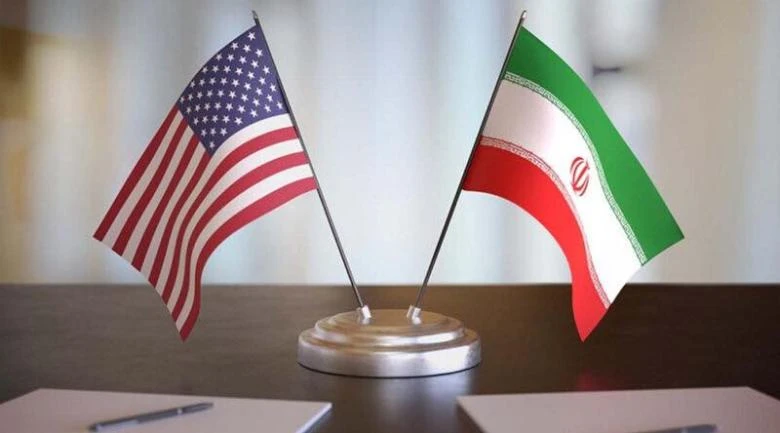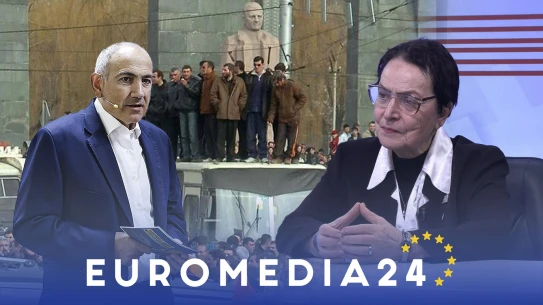The recent Iran-US meeting has received a wide response among the international community. Important international actors, the EU, Russia, China have made various assessments related to the agenda, the results and its possible impact on regional stability.
French Foreign Minister Jean-Noel Baro said that "very much welcomes the first round of US-Iran talks. He also noted that he will be "vigilant" along with Germany, Great Britain and other allies to ensure that any negotiations between Iran and the United States will "meet" their national interests on Iran's nuclear program.
"We will follow the situation with our British and German friends and colleagues to make sure that any negotiations are in line with European security interests," he said.
He stated this ahead of the meeting of the EU Foreign Ministers in Luxembourg.
In international organizations, Russian Permanent Representative Mikhail Ulyanov called the results of the Iran-US talks "encouraging" in Oman.
"According to the results of the meeting in Oman, the Iranians, and the Americans described the talks as positive and constructive, and it is encouraging," Ulyanov wrote in his wave of Telegram.
The Government of Qatar has also expressed a statement that the country's "positive spirit" is part of the negotiations between the United States and Iran, as a part of security, peace, stability and development in regional and international levels. "
Oman Foreign Minister Baden Ben Hamad al Busa, who is a mediator in the talks between the Islamic Republic and the United States, made a post on X social network, describing the atmosphere of negotiations friendly and peacefully and thanking both sides.
The Ministry of Foreign Affairs of Saudi Arabia has also issued a statement that the country welcomes the talks between Iran and the United States. The statement said: "We hope that the results of the Iran-US talks will help strengthen security, stability, and peace in the region."
The Iraqi and Turkish delegations led by the two countries in Antalya were welcomed the positive results of the recent meeting of Iranian and American delegations in Muscat on April 12, 2010 that the continuation of these talks would raise the way to find a peaceful solution to this conflict.
Russian Foreign Ministry Spokesman Lin Jian, referring to Tehran-Washington talks, called on the United States to show "political honesty and mutual respect."
Jian said in this regard. "The United States, as a country, unilaterally, has left a comprehensive agreement on Iran's nuclear issue (JCPOA), to create these conditions, political honesty and mutual respect."
He emphasized. Washington must enter into a dialogue and consultation and at the same time stops its wrong approach to the use of force to make maximum pressure.
The high-ranking Chinese diplomat added. China continues to keep in touch with all parties involved, actively contributes to peace and dialogue and calls for a diplomatic solution as soon as possible.
The Persian Gulf Cooperation Council hopes for positive results and new horizons of cooperation between Iran and the United States.
Israel is also closely following the US and Iran's nuclear talks, Israeli officials are deeply concerned about negotiations on the US nuclear program with Iran. This was reported by the Israeli media.
The assessment of some Israeli analysts is that US President Donald Trump may want to sign a deal with Iran, even a transaction that will not completely demolish the Iranian nuclear weapon program.
Some officials believe that Iran may offer to close or destroy its some nuclear facilities without entirely dismantling its nuclear program, trying to present a perceived diplomatic victory.
Although Israel does not directly participate in the talks, he is vital to their outcome.
Israel is convinced that the threat of hostilities, including the strengthening of US troops and capabilities in the region, influenced Iran to bring Iran to the negotiating table. However, there is a certain fear that the United States may not have endurance for long, difficult negotiations.
Prior to Israeli Prime Minister Benjamin Netanyahu expressed his interest in Libyan's example, very few Israeli officials think that such an option is possible in the case of Iran's nuclear program.
Unlike Libyan dictator Muammar Gaddafi, whose primary interest in nuclear weapons was political, the Iranian regime is apparently guided by strong ideological reasons.
In addition, Gaddafi's handing over his nuclear program later made him more vulnerable to external intervention, which led to his failure and death during the Arab Spring during the Libyan rebels.
There is also a concern that Trump, which now leads his second term, will not be able to implement any negotiated deals, no matter how much he has left office.
However, there is fear that the following administration of Trump may not be so sensitive to Israel's concerns, particularly in connection with the support of a possible military strike on Iran's nuclear facilities.
It should be noted that according to the preliminary agreement of the parties, diplomatic meetings will continue in Rome on April 19.
Nare Ghazaryan


